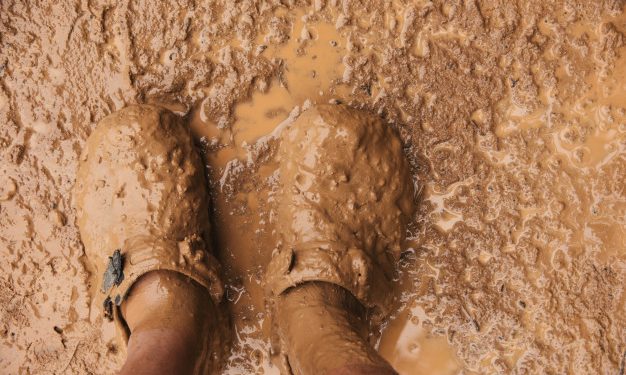I like to think that when it comes to Nigeria, my heart bleeds green. But this is not always true.
The earliest things I knew about this country, I learned from the dirt road that led to my schoolhouse. The road had a pool of water that only primary school pupils too tall for their age could wade through without fear of drowning.
I remember the first kind of flood flowing past my school building with enough torrent to carry away the sandals not tightly buckled on our feet. My school mates and I would make a sport of finding something floatable and host an epic race with leaves and paper boats from school notes we shouldn’t be tearing in the first place. This little game was an act of survival; we mentally decided wherever the items flowed fastest was the direction we should be taking as we walked home.
Sometimes I think of our country, and my heart is black – no grey undertones or flecks of another colour. Pitch Black. There was a point when whatever blocked the drainage of my childhood school area would intersect with the flood, and then it would all float to the surface and stay there with the rest of the garbage disposed of months before that.
Back then, we would go to the classroom, learn about pollution and wade in it on our way home. My friend, Wasiu’s home, was a stone throw from the school. A teacher once walked to the window and tossed a stone on his roof to be literal. While the rest of us entertained ourselves as we found our way home, Wasiu would get his own entertainment by standing in front of his home waving and smirking at us, as though it was payback for every time we laughed at the aggressive tribal marks that ran from the corner of his smile and over each cheekbone.
There was never a time the roads were accessible because the government tried to fix it. The best we had was an occasional sand-filling that a little rain didn’t have to try hard to wash away.
What we did was adapt.
No socks until you get into the classroom, so they stay white at least for the first hour of the day. Ball them up and put away when leaving the school premises, so you can thread easier, help anyone carrying with more than one younger sibling by carrying the toddler.
These things didn’t get announced on the assembly; we made it up as we waded along; from almost drowning lessons, from losing things and from learning to take care of each other.
So like Nigeria, where it feels like you must survive in spite of everything happening to you. You must adapt. Everyone agreed that as children we shouldn’t be experiencing what we did, but no one felt there was anything they could do but point out where we shouldn’t stick out feet to avoid falling into a gutter.
Now, as an adult, I often wonder: Is my patriotism green? I am not sure, but I still move around this country trying not to drown.


